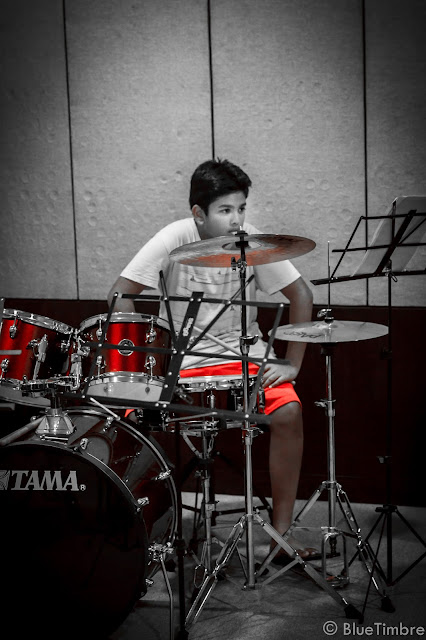Dr. Robert Pace who was the leader of one of the most prestigious music teacher’s college during his time had done experiments to understand the advantages of ensemble learning for beginner students. Interestingly, he was a staunch believer in private format but he noticed an essential dynamic in the group format during his experiments which was absent from the private classes. After various observations, he finally concluded in a keyboard journal in 1978 that ensemble learning created better results for young learners.
Let us understand why beginners should avoid private music classes for better progress.
Expensive : Private lessons are expensive as most of tutors charge you per session. It can cost you around Rs.500 - 1000 per hour which can add to Rs 4000 -Rs 8000 a month. As beginners take longer time to grasp the basics, it eventually will burn a hole in your pocket. You might not be able to afford that every month.
Repertoire of Teacher : You are basically depending on the knowledge of one individual which may just be his/her perspective. In a good institution, a teacher goes through various training and builds a wider perspective of learning and teaching music. A private tutor, although a great musician may not be a good teacher whereas in institutions, they are trained to handle a class and different kind of students.
Limited Time Resources : A private tutor can find it hard to be flexible with timings and students may miss out on gradual progressive learning which is very important to build on their basics as initial training requires a lot of dedicated and structured practice sessions. If the private tutor is charging you monthly, they may be very hesitant to extend the month or take an extra session if you miss a class.
Unstructured Lessons : Although private classes can be tailored according to the want of a student, for instance a focus on playing songs instead of learning the techniques and concepts before learning a song by heart. It will also lead to unstructured relaying of information. There should always be a planned, structured and gradual progress to every lesson, otherwise students tend to not understand the complex information later on in their learning process. Without learning the techniques, concepts and theory behind a song, students will be unable to progress beyond a point.
No Class-Engagement : One on one sessions can be pretty daunting, sometimes too monotonous and the student end up feeling bored in the class which is a very bad sign when learning music. Music should be fun, interactive and engaging. Students learning through private tutor can end up shy and reluctant to play in front of others as they get no exposure to the social and interactive dynamics of a group class. Social interaction when learning encourages more practice, positive competition among peers and actual understanding of what playing music stands for. For instance, you can compare this to sending a child to school vs home tutoring - social interaction and learning from peers is a key factor.
Good Music Schools have dedicated teams who is focused on providing the best quality music education to young and new learners with a professional, well-planned and a structured curriculum that ensures that the student enjoy the process of learning their music while learning all the essential elements of music. With the right guidance and an intelligently designed curriculum, a generation of young musicians can be inspired to connect with music and understand music in most meaningful, engaging and enjoying ways.
References:








